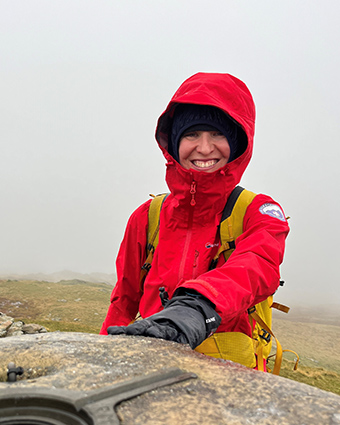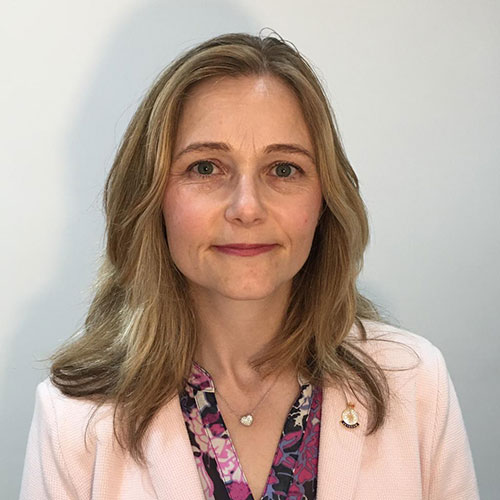

GP to the (mountain) rescue

For many in civilian life, knowledge of the military - the stereotypes of drill sergeants and long marches - is lifted straight from film and TV.
But for Dr Emily Brookes, her understanding of the armed forces is rooted in lived experience.
"I had family members who were in the military," says Dr Brookes, "so working as a military GP made sense.
"It was also an opportunity to be deployed overseas, to explore parts of the world I would never have seen otherwise and to practice remote medicine. That sense of belonging too was attractive, that feeling of being part of something bigger."
Emily's service began with a cadetship with the Army during her medical training, followed by Officer training at Sandhurst and GP training in Ministry of Defence Hospital Units and military GP practices in Germany and Cyprus. These experiences would be formative and, upon qualifying, she served as a military GP for nearly two decades - eleven years with the Army and six with the Royal Air Force.
During this time, Emily's deployments included operational tours to Afghanistan and overseas exercises including in Africa and Belize.
"I was assigned to a regiment made up of roughly 500 soldiers - or patients to me," she recalls.
"Military life was busy and demanding, with an emphasis on both occupational medicine and the primary care of my patients," Emily says, "but that familiarity with your patients is harder to find in civilian life nowadays. You could really get to know them; there was often a nice rapport that came with that. It helped to contextualise my consultations. I knew them well, and could better understand what their life was like and how they needed help."
Emily’s experience of service, and the skills she learnt from it, are still something she draws on when she’s seeing patients, particularly those who also served in the armed forces.
"One of the most important lessons I've taken forward, is the importance of fostering patient trust. Patients from all walks of life can have that stiff upper lip mentality, but it can be more common among service people, and they need to feel as though they can trust their GP in order to open up and discuss their problems.
"Veteran-friendly posters or insignias in parts of the practice can help make a veteran realise that their GP is someone who understands what they've been through. It can encourage them to share that crucial detail about their health that they may have avoided sharing otherwise.”
Alongside her work in practice, Emily has been working with the College as the RCGP's Veterans Clinical Champion since 2022, developing the Veteran Friendly Accreditation scheme for GP practices. The development of the scheme, by coincidence, originated from an idea of Emily’s brother, who is also a veteran GP.
Initially conceived in 2017 by the RCGP’s Midland Faculty, the accreditation scheme has been running nationally in collaboration with NHS England since 2019. It is a quick-to-implement, free support programme that provides the GP team with a simple process for identifying, understanding and supporting veterans – and, where appropriate, help refer veterans to specialist physical and mental healthcare services.
"There can be misconceptions about treating veterans - the thing to remember is that everyone's military experience is different," Emily makes clear.
"Some veterans will want to talk about their service, others won't. Some may be dealing with associated physical and mental health issues such as alcoholism or isolation but this, of course, isn't universal.
"You don't need to have served to empathise, and that's what we've aimed to do with the accreditation - to give all GPs the skills they need to foster trust with veterans and encourage them to use available support networks."
Emily’s key piece of advice for GPs treating veterans: "Make an effort to identify who your veterans are and give them an open door to connect. Getting accredited is a really great way to do this, it shows you're there to support them. It breaks down those barriers."
For full details of how to become an accredited practice, visit the College's Veterans' Health Hub.
Thank you for your feedback. Your response will help improve this page.